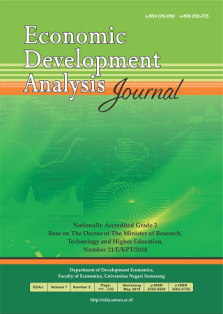The Impact of The Program Indonesia Pintar on School Participation
Abstract
In 2015, the government distributed Conditional Cash Transfer (CCT), called the Program Indonesia Pintar (PIP), to reduce education costs for poor households and increase children's school participation. This research aims to assess the impact of PIP on school participation according to recipients' education level and place of residence. The study utilizes National Socio-Economic Survey data from 514 districts/cities throughout Indonesia from 2013 to 2019. Observations are combined with the Propensity Score Matching (PSM) method to address selection bias. Additionally, the author employs the Instrumental Variable method to address indications of endogeneity among PIP recipients. The research findings indicate that PIP recipients exhibit characteristics typical of low-income families. Comparing recipient groups, it can be concluded that most PIP recipients are children living in small households with many household members and with parents of low educational attainment. Furthermore, the study reveals that PIP positively impacts school participation across all levels of education, with the most significant impact observed at the high school level. Moreover, PIP appears to have a greater impact on rural areas than urban ones.


